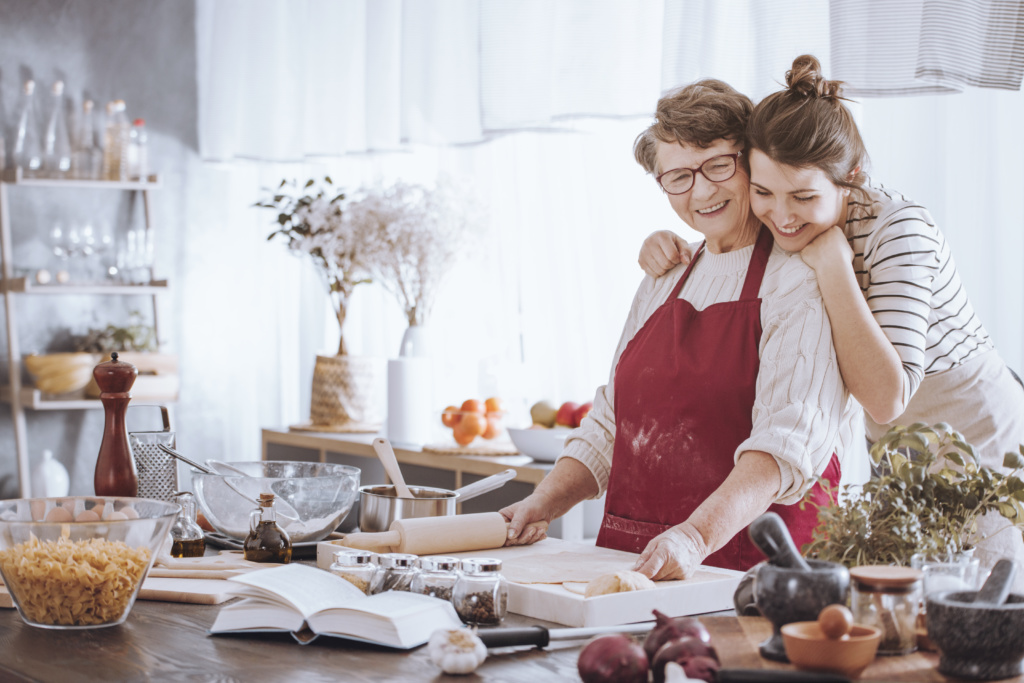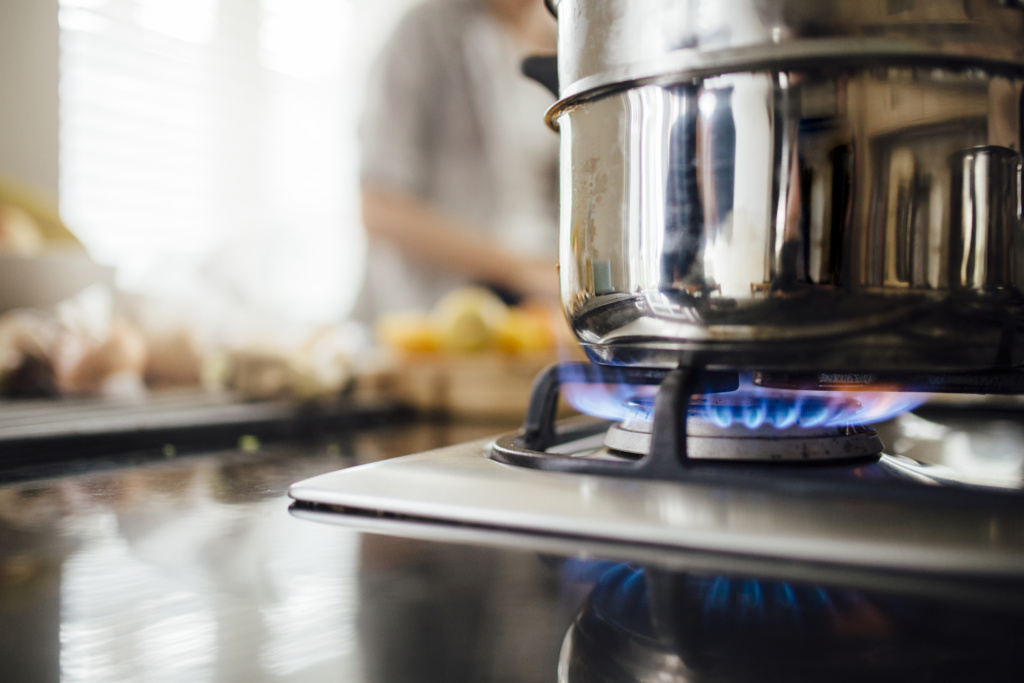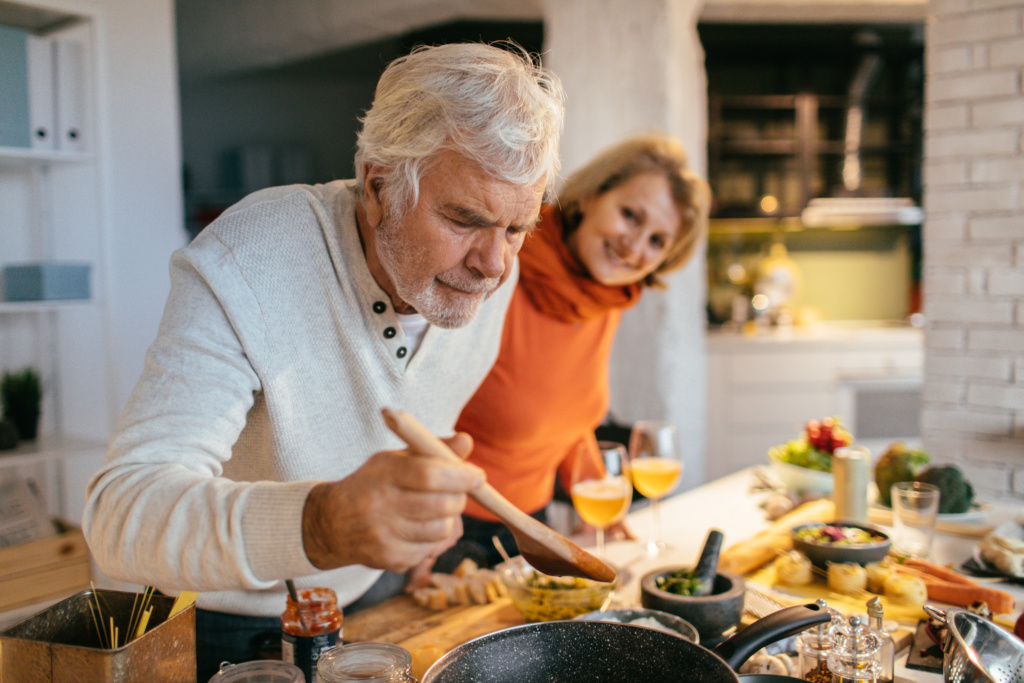MatureWell: Cooking Safety for Seniors
Courtesy of CHI St. Joseph Health
Did you know adults over the age of 65 have a higher risk of injury in the kitchen due to various conditions that come with age? Or that older adults have thinner skin that burns more easily than younger skin? Fortunately, there are a few things you can do to keep yourself safe in the kitchen, and we’re dishing out our favorite tips to keep your food delightful and your cooking experience from becoming frightful.
Don’t Leave Cooking Food Unattended
While a watched pot never boils, unmonitored cooking can lead to fires. Whether you’re using the stove, the oven, or the microwave, don’t leave your cooking food unattended. Set a timer to remind you when to take your food off the heat. Once you’re finished in the kitchen, be sure to double check all appliances to make sure they’re off.
Declutter & Keep It Clean
Objects like paper towels, oven mitts, and food wrappers can catch fire if left close to a stove burner. Have a designated location to keep your cooking tools far from the stove, and discard any trash as soon as you’ve used it. Always wear protective shoes with traction while walking on the kitchen tile, and clean up any spills immediately to prevent slips.
Pick the Perfect Pot
“One-handled pots can be heavy and put a lot of stress on the hand, especially for those with arthritis. Instead, choose pans with two handles, which distributes the weight more equally,” says Leena Kodali, MD, Medical Director for our MatureWell Lifestyle Center. The handles should extend a few inches away from the pot so you can grip them without touching the hot surface.
Turn on the Lights
Being able to clearly see what you’re cooking is essential for noticing smoke and other signs that a fire might be starting. Make sure your kitchen is well-lit, and use lights attached to your vent hood if you’re cooking on the stovetop.
Don’t Panic
If a kitchen fire does start, remain calm. Don’t try to move the pan at all, not even to remove it from the heat source. If the flames are out in the open, grab the pot’s lid or a baking sheet and place it on top to smother the fire. Immediately turn off the heat source. Keep a close eye on it, but don’t try to touch it or remove the lid or pan until everything is completely cool. If a fire breaks out in the oven, turn off the heat, leave the door closed, and monitor the oven from a safe distance. If the flames begin to grow out of control, evacuate your house and call 9-1-1 as soon as possible.
There are a few more things to keep in mind when dealing with flames in the kitchen. Never try to put out a kitchen fire with water, as it can splatter the burning oil, causing the flames to spread. You can use baking soda to smother kitchen fires, but only attempt this on small ones as this method requires a large amount of baking soda to be effective. Routinely check your smoke detector to make sure it works, and replace the batteries twice a year. Finally, keep a Class B fire extinguisher in your kitchen at all times. Learn how to properly use a fire extinguisher so you’re prepared in the event of an emergency. In the event of a serious injury, call 9-1-1 or visit your nearest CHI St. Joseph Health emergency room.
Whether you’re a seasoned pro or you’ve never stepped foot in a kitchen, CHI St. Joseph Health MatureWell Lifestyle Center offers a Healthy Cooking Program to teach seniors how to make nutritious and delicious meals. If you would prefer to get your heart pumping rather than cook up some food, we also offer fun and exciting fitness classes to help you live a healthier life.
Sources:
Ameriburn | Cooking Safety for Older Adults
NFPA | Cooking safety in the homeKitchn | Kitchen Safety: How to Put Out a Grease Fire
U.S. Fire Administration | Choosing and using fire extinguishers
Five Star Senior Living | Kitchen Safety Checklist for Older Adults and their Family caregivers
Aging Care | Kitchen Fires: Make Cooking Safer for Seniors


